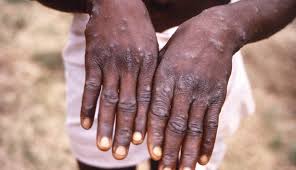Mpox, previously known as monkeypox, is a rare viral disease that primarily occurs in central and west Africa. Despite its name, the disease is not exclusively transmitted by monkeys; it can spread from various animals, including rodents. In recent years, there have been outbreaks outside of Africa, making it essential to understand the symptoms, transmission methods, and prevention strategies for this illness.
What is Mpox?
Mpox is caused by the monkeypox virus, a member of the Orthopoxvirus genus, which also includes the variola virus (which causes smallpox). While mpox shares some similarities with smallpox, it is generally less severe and less contagious.
Symptoms of Mpox
The incubation period of mpox ranges from 5 to 21 days, with symptoms typically appearing within 7 to 14 days after exposure. The illness begins with flu-like symptoms, including:
Fever
Headache
Muscle aches
Backache
Chills
Exhaustion
Swollen lymph nodes
Following the initial symptoms, a rash develops, usually beginning on the face and then spreading to other parts of the body. The rash progresses through several stages, from macules to papules, vesicles, pustules, and finally, crusts that fall off.
Transmission
Mpox can be transmitted from animals to humans or from person to person. Animal-to-human transmission can occur through direct contact with the blood, bodily fluids, or cutaneous or mucosal lesions of infected animals. Human-to-human transmission primarily occurs through:
Close contact with respiratory secretions
Skin lesions of an infected person
Contaminated materials such as bedding or clothing
Though the virus does not spread as easily as common respiratory diseases like the flu or COVID-19, close and prolonged contact is usually required for transmission.
Prevention and Treatment
Preventing mpox involves limiting exposure to potentially infected animals and individuals. Here are key prevention strategies:
Avoid contact with animals that could harbor the virus, particularly in areas where mpox is prevalent.
Practice good hygiene, including regular handwashing with soap and water.
Use personal protective equipment (PPE) if caring for someone with mpox.
Vaccination: The smallpox vaccine has been shown to be about 85% effective in preventing mpox, and newer vaccines are being developed.
There is no specific treatment for mpox, but supportive care can help manage symptoms. Antiviral drugs like tecovirimat, which are used to treat smallpox, may also be effective against mpox.
Conclusion
While mpox is a serious disease, it is less contagious and severe than smallpox. Awareness of the symptoms, transmission routes, and preventive measures is crucial to avoid infection. If you suspect exposure to the virus, seek medical attention promptly to receive appropriate care and reduce the risk of spreading the disease.




